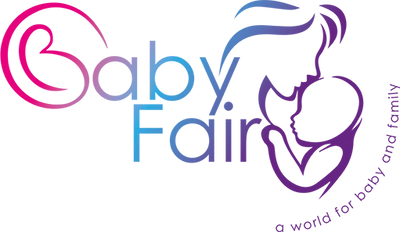The journey of baby feeding is challenging, along with dealing with baby feeding adjustments. Sometimes, the peaceful slumber was interrupted by an unexpected visitor – hiccups. Like many new parents, sometimes in-adjustability in feeding causes hiccups, and usually, they are natural and rarely interfere with their respiration rate or breathing.
Baby hiccups can be a source of concern for parents, but they are quite common and rarely cause alarm. Hiccups occur in infants as their developing diaphragm muscles sometimes contract involuntarily. While hiccups are typically harmless and temporary, they can still cause discomfort for your little one.
There are some effective tips to help alleviate and eliminate baby hiccups.
Burping:
Frequent hiccups in babies often stem from swallowed air during feeding. Ensure your baby is properly burped after every feeding session to prevent this. Hold your baby against your shoulder or sit upright while gently patting or rubbing their back. Burping helps release trapped air, reducing the likelihood of hiccups.
Pacifier or Thumb Sucking:
Offering a pacifier or encouraging gentle thumb sucking can help interrupt the hiccup reflex in babies. The sucking motion helps to regulate their breathing and may effectively halt the hiccups. However, ensure your baby has developed a strong latch and breastfeeding routine before introducing a pacifier.
Adjust Feeding Technique:
If your baby frequently experiences hiccups after feeding, it may be helpful to modify your feeding technique. Ensure your baby is positioned properly during nursing or bottle-feeding to minimise air intake. Keep their head slightly elevated and maintain a steady flow of milk to prevent gulping.
Slow and Frequent Feeding:
If your baby tends to gulp down their milk quickly, it can lead to hiccups. To avoid this, try feeding them in smaller, more frequent intervals. Allowing them to take breaks during feeding can reduce the chances of overfeeding and subsequent hiccups.
Massage or Tummy Time:
Gentle massage techniques can help relax your baby's diaphragm and relieve hiccups. Rubbing their back or gently massaging their tummy in a clockwise motion can aid in soothing their digestive system. Additionally, placing your baby on their tummy for short periods during supervised "tummy time" sessions can alleviate hiccups by allowing gravity to release trapped air.
Maintain a Calm Environment:
Babies are sensitive to their surroundings, and stress or excitement can contribute to hiccups. Creating a calm and peaceful environment during feeding and nap times can help minimize hiccups. Keep noise levels low, dim the lights, and provide a soothing atmosphere for your baby.
How to stop baby hiccups?
Although not always, hiccups are frequently related to feeding. To avoid hiccups while feeding, you can do a few things. The most important thing to remember is to remain calm, so make an effort to ensure that your baby is calm when fed and not excessively hungry.
You can also try to change the feeding position of the kid. The upright position for feeding is suggested to stop baby hiccups.
Why do babies get hiccups in the womb?
Getting hiccup in the womb, the infant's diaphragm makes tiny movements in the womb when they start to practise breathing, which causes baby hiccups.
Amniotic fluid enters the infant's lungs as they breathe in, contracting the diaphragm that is still developing.
How to get rid of newborn hiccups?
Many ways to eliminate the baby hiccup at the initial stages are on your list. Hiccups in newborns can be stopped by burping. You can also have a pacifier to avoid it. you can also take a break to burp the baby, which reduces the air in the stomach to relieve hiccups.
Conclusion:
While baby hiccups can be bothersome, they are typically harmless and will resolve on their own. Many simple and gentle techniques can relieve and comfort your little one. As, each baby is unique, it may take trial and error to find what works best for your child.
However, if hiccups persist for extended periods or are accompanied by other concerning symptoms, it is advisable to consult your paediatrician to rule out any underlying medical conditions.
Don't let those pesky hiccups dampen your baby's spirits. Get soothing and comforting your little bundle of advice at BabyFair!

 Free
Free Request Free
Request Free  Build Your
Build Your Fast Delivery on Every Product
Fast Delivery on Every Product 
 Klarna 0% Finance
Klarna 0% Finance 









